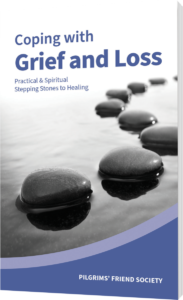 Maybe you have never been bothered by things that go bump in the night, or anything strange, or supernatural. But enough people have experienced something disturbing like this to prompt the Baptist Union to form a group of especially trained people to help ministers in the safe practice of deliverance ministry. Formed in 2018, the group consists of Baptist ministers and medical professionals, three of whom have been trained to the same standard as Anglican Diocesan DM advisors, and two of whom sit on an Anglican DM panel. Recently the group has warned that they are finding themselves helping people who turned to spiritualism following the death of a loved one during the Covid pandemic, and are now asking for deliverance ‘from some horrific consequences of becoming involved in spiritualism.’
Maybe you have never been bothered by things that go bump in the night, or anything strange, or supernatural. But enough people have experienced something disturbing like this to prompt the Baptist Union to form a group of especially trained people to help ministers in the safe practice of deliverance ministry. Formed in 2018, the group consists of Baptist ministers and medical professionals, three of whom have been trained to the same standard as Anglican Diocesan DM advisors, and two of whom sit on an Anglican DM panel. Recently the group has warned that they are finding themselves helping people who turned to spiritualism following the death of a loved one during the Covid pandemic, and are now asking for deliverance ‘from some horrific consequences of becoming involved in spiritualism.’
Most spiritualists are simply misguided individuals struggling to cope with unresolved grief, believing that they can once again speak with their loved ones. Jesus Christ is not presented as the Saviour, but as a perfect medium to ‘the other side’. Darwinism has a lot to answer for as many spiritualists believe that death is simply going to another place that is a part of the evolutionary process. But the is a darker depth, as some are now discovering.
My parents were spiritualists and we children were sent every Sunday to the Spiritualist Sunday school. It’s been my experience that it’s mainly older people who go to Spiritualist churches, and there could be a link in the fact that 82 is the average age of people who died during Covid. The elderly have lost life long spouses and relatives. They weren’t able to say goodbye to their loved ones, which is the first step in healing, grieving process. Now many are coping with anger, guilt and deep regret, and many PTSD.
Two years ago my 19 year old grandson Luke, was killed in a motorbike accident on a deserted country road, eight weeks after my youngest son, living with his family in South Carolina, lost his battle with Leukaemia. I couldn’t get a flight in time to South Carolina, although my daughter-in-law helped us speak over a phone speaker. In the following months I came to realise the importance of that final, ‘goodbye, see you in the morning.”
When the pandemic struck and the deaths began my prayers were for the families left behind. Self isolation meant that the usual social support wasn’t in place and they were thrown onto their own resources. Throughout my grieving I’d been supported by my Christian friends, my church, my colleagues and my family – and most of all, deep in my soul, by the Holy Spirit. He really is our Comforter, and proved the reality of the Scriptures that say, ‘underneath are the everlasting arms.’ I found that living with grief is like walking through a deep muddy swamp feeling for foot holds that will take you through it, day by day, and as a cognitive behavioural therapist I recognised that those footholds are both spiritual and practical.
 The Bible tells us to ‘comfort others with the comfort that we ourselves were comforted’ (two Corinthians 1:4). So after a little research that included speaking with other Christians about what helped them in bereavement to widen my own experience, I wrote a booklet, ‘Coping with Grief and Loss.’ So many people have told me how helpful they found it. Recently I gave a copy to an 84 year old who is 51 year old son died suddenly from a heart attack. She said, ‘it could have been written exactly for me.’
The Bible tells us to ‘comfort others with the comfort that we ourselves were comforted’ (two Corinthians 1:4). So after a little research that included speaking with other Christians about what helped them in bereavement to widen my own experience, I wrote a booklet, ‘Coping with Grief and Loss.’ So many people have told me how helpful they found it. Recently I gave a copy to an 84 year old who is 51 year old son died suddenly from a heart attack. She said, ‘it could have been written exactly for me.’
If you know people who are struggling with unresolved grief, could I suggest that you give them a copy? We know that faith leaders have brought a small supply so they can do this.
It’s available for just £3.00 from our Pilgrims friend Society website, at https://www.pilgrimsfriend.org.uk/resources/coping-with-grief-and-loss.














